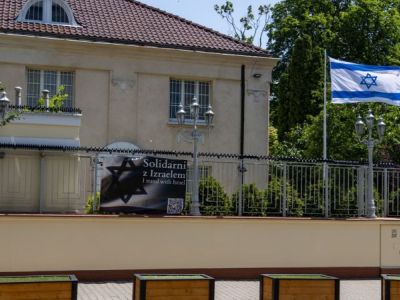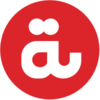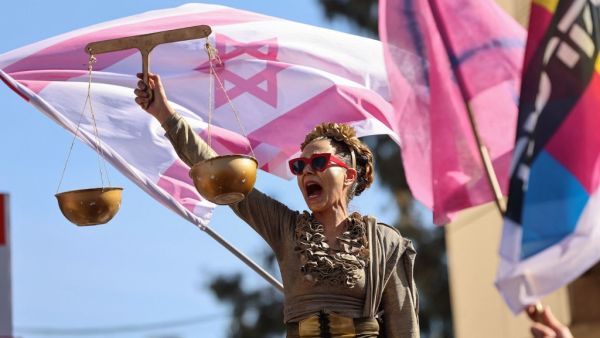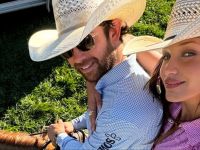Under heavy security and after several delays due to the coronavirus lockdown, Prime Minister Benjamin Netanyahu arrived Monday morning at the Jerusalem District Court for a much-anticipated court hearing in his corruption trial, focusing on his and other defendants’ response to the indictment and kicking off the intensified evidentiary phase of the trial.
After formally denying the charges against him and receiving permission from the judges to leave, Netanyahu stood up, thanked the bench and left the court. Unlike during the opening of his trial last year, the premier made no statement to the media before or after his court appearance, nor did he make any statement online.
Earlier, Netanyahu’s motorcade as well as the other defendants, Shaul and Iris Elovitch and Arnon Mozes, arrived at the court after security was stepped up, with snipers on nearby roofs in line with Netanyahu’s normal security arrangements and with little fanfare, after the premier on Sunday asked his supporters not to come to the court due to surging coronavirus infections.
Netanyahu arrived early at the court and was seen sitting with his back to cameras next to an open window through which he could hear the dozens of protesters against him outside, following weekly protests held in recent months.
The demonstration grew later, during the hearing, to hundreds of people who made noise that could be heard inside the courtroom, which had open windows in line with COVID-19 regulations.
It was the second time Netanyahu has attended a hearing of his trial in person.
He verbally confirmed the defense filed by his lawyers, who declined to add verbal arguments to their lengthy written response filed with the court last month.
Israeli Prime Minister Benjamin Netanyahu pleads not guilty to corruption charges in court, six weeks before a general electionhttps://t.co/Xb2fVzABub
— CNN Breaking News (@cnnbrk) February 8, 2021
Formally denying the charges against him, the premier stood up and told the court: “I confirm the response filed by my lawyers.”
The lawyers were focusing on procedural arguments such as the alleged lack of sufficient approval to launch the initial investigations and to issue search warrants for material, as well as a range of other defense claims in the case itself regarding the “precedential” nature of many of the charges.
Perhaps more importantly, the court will also discuss the timetable for the evidentiary stage of the trial, including whether its start will be postponed until after the March 23 Knesset elections and whether and to what extent Netanyahu will have to attend the expected three long hearings per week, which would consume much of his time, while he also manages the country.
Knesset speaker and Netanyahu loyalist Yariv Levin insisted the court must postpone the trial’s upcoming phase. Proceeding now “will be lending a hand to blatant meddling in the elections,” he told the pro-Netanyahu Israel Hayom newspaper on Sunday.
Levin charged that it was unfair for the prosecution to present its case during the election campaign, while the defense rebuttals are scheduled for after election day.
Israeli Prime Minister Benjamin Netanyahu's corruption trial has resumed, with the 71-year-old set to formally respond to the charges against him.
— DW News (@dwnews) February 8, 2021
The court case involves secret recordings, media moguls, cigars and champagne gifts, and aides' betrayals.https://t.co/lcDvt8KJWW
Two courtrooms have been combined to accommodate the trial, which is being adjudicated by Rivka Friedman-Feldman, Moshe Bar-Am and Oded Shaham.
The public is not able to watch the proceedings. Instead, CCTV footage is being broadcast to journalists in an adjacent room.
The defense arguments focused on the lack of formal, written approval by Attorney General Avichai Mandelblit for the opening of the probe into the specific cases, claiming that a blanket okay was illegally given to seek any evidence against Netanyahu.
Netanyahu’s lawyer Boaz Ben Tzur alleged that “an indictment was filed here on the basis of a partisan, independent, unauthorized investigation by an investigative body.”
The argument didn’t appear to impress Judge Moshe Bar-Am, who repeatedly interrupted Ben Tzur, noting that Mandelblit has said several times that he did indeed approve the investigations as required.
The lawyers largely repeated parts of the written defense filed to the court. At one point, Justice Friedman-Feldman told Ben Tzur to wrap it up: “Everything has been written. Please focus on things that weren’t written. You have been talking and talking and in the end there’s no connection.”
Netanyahu faces charges of bribery, fraud, and breach of trust in Case 4000, which involves suspicions that he granted regulatory favors benefiting Elovitch, the controlling shareholder of Bezeq telecoms, in exchange for positive coverage of the prime minister and his family from the Bezeq-owned Walla news site. The Elovitches also face bribery charges in the case.
Netanyahu also faces charges of fraud and breach of trust in Case 1000 and in Case 2000. The former involves suspicions Netanyahu illicitly accepted some $200,000 in gifts such as cigars and champagne from two billionaires — Hollywood-based Israeli movie mogul Arnon Milchan and Australian magnate James Packer.
In Case 2000, Netanyahu is accused of attempting to reach a quid pro quo with Yedioth Ahronoth publisher Arnon Mozes for positive media coverage in exchange for legislation weakening rival newspaper Israel Hayom. Mozes was charged with bribery in the case.
The premier’s lawyers have repeatedly moved to delay and discredit the proceedings, filing complaints against the prosecution, alleging “criminal tactics” had been used against them, calling for changing the indictment against the prime minister, and claiming that police investigators had used illegitimate means to secure evidence, thus rendering the charges moot.
Members of Netanyahu’s Likud party geared up Sunday to accompany him to the court, but Netanyahu reportedly ordered Likud MKs not to come to the hearing, due to surging COVID-19 infections.
However, some Likud members sent their support online.
“We may not be with you physically, but we are with you from afar, offering our strength and support,” wrote Transportation Minister Miri Regev on Facebook. “Like many in the public, I believe in his innocence.”
MK Osnat Mark called the hearing “another stage in the attempted political assassination called the Netanyahu cases.”
In the first hearing of the trial last May — the previous time Netanyahu was required to attend — most of the party’s lawmakers showed up and the premier made a long, fiery speech lambasting the justice system and saying the charges were “fabricated.”
Netanyahu repeated that claim Sunday, calling on his supporters not to come to the court to show solidarity with him, due to the high morbidity caused largely by the more infectious coronavirus variant originating in the UK.
“I know you want to give me strength in light of the fabricated and false cases against me,” said Netanyahu. “But we are at a time when a [mutated strain] is spreading around the world, and in Israel too, so for the sake of your own health I ask you: Don’t come tomorrow.”
Netanyahu’s trial opened in May. Though the prime minister attended the first hearing, he was granted an exemption from appearing at later, largely procedural stages of the trial.
Netanyahu, who is the first Israeli premier to be indicted while in office, denies any wrongdoing and has railed against the courts, prosecution, and media for what he terms a “witch hunt.”
This article has been adapted from its original source.










